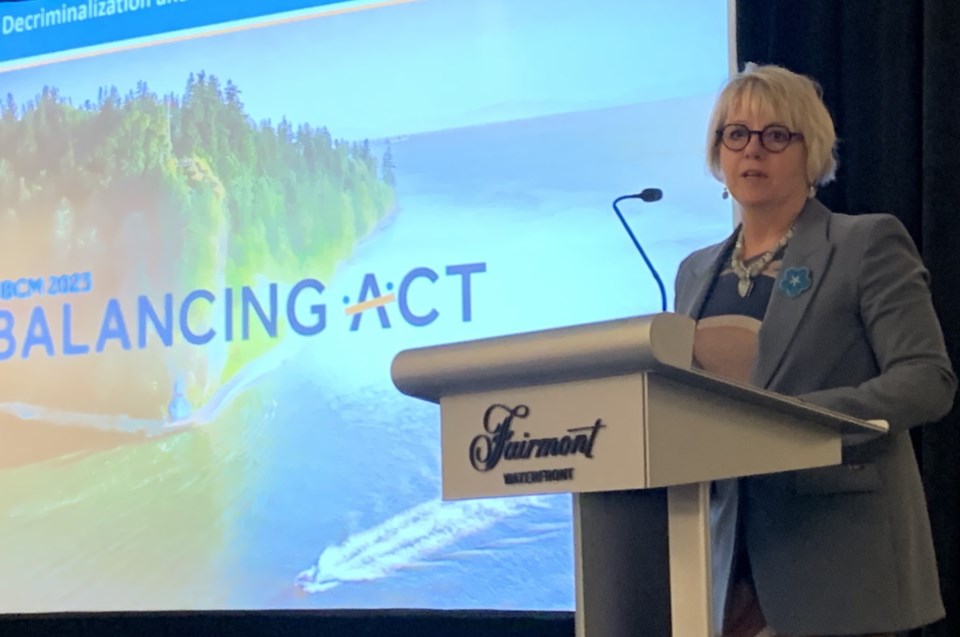Provincial legislation to address illicit drug use in areas frequented by children is being worked on and may be complemented by local bylaws, Union of BC Municipalities (UBCM) convention delegates heard Sept. 18.
A proposed UBCM resolution to be discussed later this week urges the province to introduce legislation soon to further regulate the "possession and use" of illicit drugs where children gather.
"(Concerns) have been raised by local governments since the pilot project began in January 2023 on the public use of illicit drugs in child-focused spaces such as parks and playgrounds," the resolution says.
That project is decriminalization: allowing possession of 2.5 grams of certain drugs without fear of criminal sanctions.
“Decriminalization is about the drugs,” said provincial health officer Dr. Bonnie Henry Monday at the annual UBCM conference, being held in Vancouver. “It’s about removing criminal penalties from the person.”
The province has tightened up its decriminalization policy — effective Monday — by banning possession of illicit drugs near playgrounds and parks.
The government has heard from the public that people now believe addiction is a public health issue, said Mark Fassina, Ministry of Public Safety and Solicitor General executive director of the corporate policy and planning office. That issue, he said, is often mixed in with other pressing issues such as the housing shortage, homelessness and poverty.
Fassina told UBCM delegates communities also have concerns about discarded drug paraphernalia and that drug use might be normalized.
Mary Shaw, Ministry of Public Safety and Solicitor General assistant deputy minister for cannabis, consumer protection and corporate policy, said there are also concerns about drug usage at bus stops where children, youth or seniors may be present as well as users obstructing entrances to businesses.
“Ideally, compliance is the goal and enforcement is the exception,” she said. “The idea is you need policing tools to move people along.”
However, Shaw added, another goal is not to force people to places where they feel stigmatized and use alone.
“We don’t want to see drug use driven into dark alleys where people overdose,” she said.
But, said other panellists, dealing with homelessness, poverty and drug use frequently means disadvantaged groups are often disproportionately targeted.
Henry noted the province is currently limited on what it can say about the impending legislation.
She stressed B.C. is currently losing six to seven people on average a day to overdose deaths.
“These are our people. They are not people from somewhere else,” she said. “They are people who grew up (in) and are connected to our communities.”
Henry noted the week of the conference is also the 20th anniversary of the opening of Vancouver’s Insite supervised injection site that former prime minister Stephen Harper’s government tried to shut down until the Supreme Court of Canada declared it a facility that provided people with a constitutional right to health care.
“People worried it would lead to an increase in drug use,” Henry said. “It did not.”
“We need to allow police to focus on crime, on prosecuting drug dealers,” she said.
The annual conference kicked off Sept. 18 and runs through Sept. 22. Delegates attend from across the province for policy sessions and discussions as well as for meetings with provincial government ministers and officials.
Much of the heavy lifting for delegates occurs later in the week as they work through hundreds of resolutions addressed to other levels of government on issues of local, provincial or national concern.



